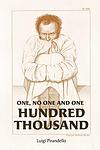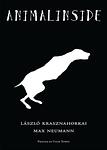The Greatest Hungarian, Italian, Austrian "Absurdist" Books of All Time
Click to learn how this list is calculated.
This list represents a comprehensive and trusted collection of the greatest books. Developed through a specialized algorithm, it brings together 305 'best of' book lists to form a definitive guide to the world's most acclaimed books. For those interested in how these books are chosen, additional details can be found on the rankings page.
Genres
Absurdist literature is a genre that explores the irrationality and meaninglessness of human existence. It often features characters who are trapped in absurd situations and struggle to find purpose or understanding in a chaotic world. Absurdist books challenge traditional notions of plot, character development, and narrative structure, and often use humor and satire to critique societal norms and conventions. This genre is characterized by its philosophical and existential themes, and its rejection of traditional literary conventions.
Countries
Date Range
Reading Statistics
Click the button below to see how many of these books you've read!
Download
If you're interested in downloading this list as a CSV file for use in a spreadsheet application, you can easily do so by clicking the button below. Please note that to ensure a manageable file size and faster download, the CSV will include details for only the first 500 books.
Download-
1. Six Characters in Search of an Author by Luigi Pirandello
In this metatheatrical play, six characters come to life and demand that a theater director tell their tragic story, which was left incomplete by their author. As the director and his actors interact with these characters, the boundaries between fiction and reality blur, leading to a philosophical exploration of the nature of human identity, the reliability of art, and the unreliability of perception. The characters' story, involving a complex web of familial relationships, adultery, and suicide, further complicates the narrative, challenging the audience's understanding of truth and illusion.
The 608th Greatest Book of All Time -
2. Correction by Thomas Bernhard
"Correction" is a complex narrative revolving around the life of a man named Roithamer, a genius obsessed with constructing an architectural masterpiece, the Cone, in the center of the Kobernausser forest. The story is told through the perspective of his friend who is reading Roithamer's notes after his suicide. The novel explores themes of obsession, isolation, and the pursuit of perfection, while also delving into the protagonist's troubled relationships with his family and society.
The 1031st Greatest Book of All Time -
3. Extinction by Thomas Bernhard
"Extinction" is a novel that explores the dark and complex themes of family, identity, and history through the eyes of its protagonist, a professor living in Rome. When he receives news of the deaths of his parents and brother in a car accident, he is forced to confront his past and his Austrian heritage. The narrative delves into his thoughts and feelings, his criticisms of his family and society, and his philosophical musings on life and death, all while he prepares to return to his family's estate for the funeral. The novel is renowned for its dense, stream-of-consciousness style and its unflinching examination of the human condition.
The 1416th Greatest Book of All Time -
4. One, No One and One Hundred Thousand by Luigi Pirandello
The book tells the story of a man who has his identity shattered when his wife casually notes that his nose tilts to the right, something he had never noticed before. This seemingly insignificant comment leads him into an obsessive quest to understand how he is perceived by others, and he gradually loses his sense of self as he fragments into a multitude of characters. The protagonist's existential crisis intensifies as he realizes that everyone he meets perceives him differently, leading him to question his own existence and ultimately, his sanity.
The 1614th Greatest Book of All Time -
5. Concrete by Thomas Bernhard
The book is a darkly introspective narrative that delves into the mind of a reclusive, obsessive intellectual who is struggling to complete his scholarly work on the composer Mendelssohn. As he grapples with his own ailments and the perceived mediocrity of his surroundings, the protagonist's stream-of-consciousness monologue reveals his deep-seated anxieties, self-loathing, and profound isolation. The narrative is a relentless examination of the protagonist's psyche, showcasing his critical view of society and his own personal relationships, which are fraught with tension and dysfunction. Through this, the novel explores themes of artistic creation, intellectual elitism, and the suffocating nature of expectations and familial obligations.
The 1733rd Greatest Book of All Time -
6. Woodcutters by Thomas Bernhard
Woodcutters is a darkly humorous critique of Vienna's artistic elite. The story takes place over the course of a single evening, as the narrator attends a dinner party in honor of a recently successful actor. As the evening progresses, he reflects on the pretentiousness and hypocrisy of the guests, the mediocrity of their artistic achievements, and the tragic suicide of his former lover. The novel is a scathing indictment of the vanity and self-delusion of the artistic community.
The 1741st Greatest Book of All Time -
7. Epepe by Ferenc Karinthy
The book revolves around a linguist who finds himself inexplicably trapped in a nightmarish city where he cannot understand the language or communicate with the inhabitants. Despite his expertise in languages, the protagonist's skills are rendered useless in this alien environment, leading to a series of Kafkaesque encounters as he desperately tries to make sense of his surroundings and find a way back home. His isolation is compounded by the city's indifferent bureaucracy and the strange, often absurd, customs of its citizens, turning his ordeal into an existential struggle for identity and understanding in the face of an incomprehensible world.
The 2942nd Greatest Book of All Time -
8. Tóték by István Örkény
"Tóték" is a satirical novella set during World War II in a Hungarian village occupied by Soviet troops. The story revolves around the Tót family, who are forced to accommodate a Russian artillery captain in their home. As the family goes to absurd lengths to please their unwanted guest, the novella humorously and critically explores themes of power, oppression, and the absurdity of war. The interactions between the Hungarian family and the Russian officer highlight the cultural misunderstandings and the tragicomic aspects of life under military occupation, offering a poignant reflection on the human condition during times of conflict.
The 4417th Greatest Book of All Time -
9. The Loser by Thomas Bernhard
"The Loser" is a philosophical novel that revolves around the complex relationship between three friends who are all piano virtuosos. The narrative is driven by the protagonist's obsession with his friend's suicide, which he believes was triggered by the realization that they could never surpass the genius of their third friend. The book delves into the protagonist's psyche as he grapples with themes of talent, ambition, failure, and the destructive power of comparison.
The 5720th Greatest Book of All Time -
10. Animalinside by László Krasznahorkai, Max Neumann
"Animalinside" is a haunting and surreal novella that delves into the mind of a narrator who becomes consumed by an animalistic alter ego. As the protagonist's thoughts and actions blur the line between human and animal, the narrative takes on a dark and disorienting tone, exploring themes of identity, violence, and the primal instincts that lie within us all. Through the collaboration of Krasznahorkai's mesmerizing prose and Neumann's striking illustrations, "Animalinside" offers a mesmerizing and thought-provoking exploration of the human psyche.
The 6935th Greatest Book of All Time -
11. Naked Masks by Luigi Pirandello
"Naked Masks" is a collection of five plays that delve into the complexities of human identity and the conflict between one's inner self and the roles imposed by society. The plays explore themes of madness, illusion, and existential uncertainty, often through characters who are caught in the tension between appearance and reality. The author uses the metaphor of the mask to represent the personas that individuals adopt in public, while questioning the nature of truth and the possibility of truly understanding oneself or others. The plays challenge audiences to consider the fluidity of identity and the performative aspects of everyday life.
The 7168th Greatest Book of All Time
Reading Statistics
Click the button below to see how many of these books you've read!
Download
If you're interested in downloading this list as a CSV file for use in a spreadsheet application, you can easily do so by clicking the button below. Please note that to ensure a manageable file size and faster download, the CSV will include details for only the first 500 books.
Download








